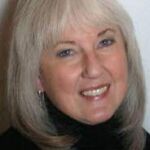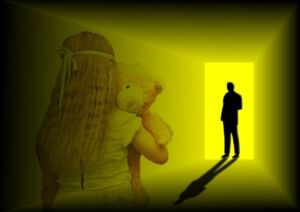Barbara Sinor, Ph.D.
 Dr. Sinor’s research clearly demonstrates the value of incorporating transpersonal/psychospiritual modalities into treatment plans for adult female survivors of incest. She presented this study in narrative form in the APRT Newsletter, 18 (2), Spring, 1998. Here we offer some of the “nuts and bolts.”
Dr. Sinor’s research clearly demonstrates the value of incorporating transpersonal/psychospiritual modalities into treatment plans for adult female survivors of incest. She presented this study in narrative form in the APRT Newsletter, 18 (2), Spring, 1998. Here we offer some of the “nuts and bolts.”
This research was designed to determine whether adult female incest survivors who utilized transpersonal/psychospiritual counseling interventions, including past-life therapy, during their recovery process felt them to be advantageous to their healing. The primary goal of the research was to present a measurable use-effective perspective to the therapeutic community at large of the benefits of psychospiritual treatment modalities for this population. It was the researcher’s hypothesis that the findings would indicate positive benefits from utilizing psychospiritual methods of counseling and/or spiritually-based self-help methods during the recovery process.
Questionnaires were mailed to 355 female volunteers who identified themselves as survivors of incest; 40% (141) were returned. The questionnaires gathered demographic data as well as narrative statements from the participants about their experience of therapy. The age range for the 141 respondents was 36-45; 87% were Caucasian, 44% were currently married, 83% had some college education, and 35% had some graduate-level education. There was a wide range of spiritual/religious affiliations.
Transpersonal/psychospiritual counseling or similar self-help methods were defined as “interventions used during the recovery process which direct the client to explore both outer and inner levels of awareness (body, mind, emotions, and spiritual nature) for self-growth and personal transformation.” Past and present life regression therapy were included within this definition.
All 141 respondents indicated that they had experienced transpersonal/psychospiritual counseling or used similar self-help techniques during their recovery process; this was one of the designated parameters of the study. Of the 141, 105 (74%) found these methods advantageous to their recovery, 3 (2%) did not, and 33 (23%) did not respond to this question. To the question of whether they would choose transpersonal/psychospiritual methods for any further therapy they might want in the future, 78 (55%) said yes, 6 (4%) said no, and 57 (40%) did not answer.
According to the participants’ narrative statements, an eclectic and broad range of methods was felt to be the most successful treatment plan. The findings suggest that it would be beneficial for therapists to explore a holistic approach when working with female incest survivors, broadening their scope of treatment to include transpersonal and psychospiritual modalities. It has been noted that clinicians typically rely on strategies that are based on individual choice, personal experiences, or clinical training to form their preferred treatment interventions (Kanfer, 1990). The participants of this study clearly felt that “traditional” therapists need to investigate, become familiar with, and offer a wider range of intervention strategies, both traditional and transpersonal/psychospiritual, to help facilitate the process of recovery from incest.
 In their narratives, some participants who had previously experienced traditional forms of therapy commented that the use of transpersonal/psychospiritual therapies had much more personal meaning for them and had helped them heal more completely. One said:
In their narratives, some participants who had previously experienced traditional forms of therapy commented that the use of transpersonal/psychospiritual therapies had much more personal meaning for them and had helped them heal more completely. One said:
I found professional counseling/therapy to be the least helpful in my healing process. I found several professionals who were unable to assist in the processing of extreme feelings and even tried to stop me doing it!
Most participants found the holistic transpersonal/psychospiritual methods that had helped them deeply meaningful and powerful. Another statement:
These [psychospiritual] methods allowed and helped me to connect with my spiritual aspect…I discovered I had to heal my soul to find recovery. I also realized I had to find a balance between mind, body, and soul to have peace and see clearly. I strongly believe counseling should entail helping the individual connect, recognize, or find the spiritual component of self. I believe it is only through healing our spiritual side that we can find complete recovery from physical, mental, and sexual abuse.
Respondents clearly felt that while traditional therapy was sometimes useful, the transpersonal/psychospiritual modalities that allowed them to explore both outer and inner levels of awareness were the foundation of their healing. The findings of this study strongly support the use of holistic, multidimensional treatment plans in helping female incest survivors truly heal. To be most successful, such an approach must incorporate transpersonal and psychospiritual modalities that can invoke the spiritual nature of the incest survivor.
References
Kanfer, F. H. The scientist-practitioner connection: A bridge in need of constant attention. Professional Psychology: Research and Practice, 21, 264-270, 1990.
